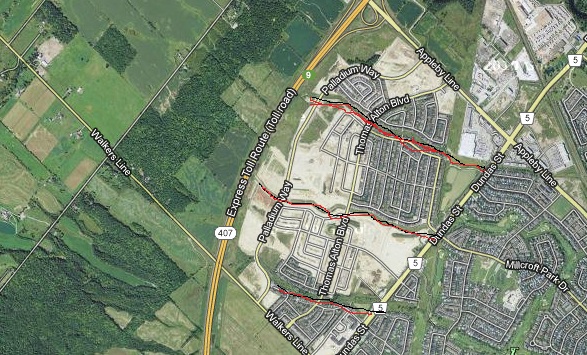 By Staff
By Staff
June 16th, 2019
BURLINGTON, ON
CATCH (Citizens at City Hall) uses transcripts and/or public documents to highlight information about Hamilton civic affairs that is not generally available in the mass media. The Gazette has republished one of their reports that is relevant to Burlington.
The Citizens at City Hall in Hamilton are shouting as loudly as those in Burlington and across the province over a piece of legislation introduced in May and made law in June – an astounding pace for any government. Bill 108 has upended planning at the municipal level.
It “came out of nowhere”, changed thirteen statutes, and was pushed through the provincial legislature so fast that city staff could only tell councillors after the fact about the multiple problems it imposes.
Dubbed by the Ford government “the more homes, more choice act”, Bill 108 upends Hamilton’s downtown secondary plan, imposes severe challenges for municipal efforts to rationally plan and pay for growth, and makes it more difficult for citizens to challenge new development.
“The winners appear to be land developers and speculators who can avoid the current comprehensive land planning process and have been given new rights to push for urban boundary expansions. Burlington’s mayor describes it as “welfare for developers” and an analysis by Environmental Defence found it largely aligns with the requests made to the province by the Ontario Home Builders Association.
“The legislation was introduced on May 2, with a comment deadline of June 1. It was finalized two days later and will likely be imposing planning nightmares by early July when city staff expect to be inundated with developer attempts to expand the urban boundary.

Burlington’s Urban-rural boundary was Dundas – when the 407 Hwy was created that boundary got shifted. Will Bill 108 allow additional boundary shifts?
“The legislation tears up the long-standing rule that only municipal governments can propose an urban boundary expansion and only with detailed justifications. Under Bill 108, expansions of up to 40 hectares can now be applied for by individual landowners at any time and must be decided on by council within a much reduced time-frame that will be very difficult to meet.
“Official plan amendments, for example, now must be decided within 120 days of being submitted by a private developer instead of 180 days, and zoning changes must be finalized within 90 days. Failure to meet these deadlines allows the developer to bypass council and appeal directly to the provincial tribunal.
“Staff told Councillors last week that they had asked for longer periods to adequately respond but were unsuccessful. So it will now be much harder for city planners to assess developer proposals, undertake traffic and other studies, receive input from other city departments and commenting agencies, consult with the public in affected communities and then make a recommendation to council within the timeframes. And multiple developer proposals will likely arrive at the same time.
“We could have multiple 39.5 hectare applications all being submitted more or less simultaneously and then trying to figure out how to deal with all of those applications,” warned Hamilton’s chief planner Steve Robichaud. “We could have everybody applying individually and I think that is what will happen. As soon as the first person comes in, the rest will want to start piling on.”
“Among many other changes “it means the matters that were worked out with community in terms of the downtown secondary plan bonusing – that’s gone by the wayside,” Robichaud told councillors.
“That’s partly because of the severe limits that have been put on the use of the inclusionary zoning that allows cities to require affordable units in new residential developments. These were demanded by citizens last year and acceded to by the city for the full downtown, but now will be limited to major transit stops such as the proposed LRT.
“Councillor Whitehead asked staff if the province had explained why it was shortening the timeframes, and was told that no justification has been provided. Whitehead predicted there will be “a lot more cases that will bypass the democratic process and go straight to appeal”.
“Those appeals will no longer give deference to council positions. And residents registering to participate in the appeal hearings will no longer be permitted to speak at the tribunals, but only submit written statements. There’s also a reference to different fees for “different classes of persons” but no explanation of what this means.
“The changes to the Planning Act alone overturn many of the reforms of the last 15 years, including reversing the changes to the Ontario Municipal Board adopted in 2017 after nearly two years of consultations. “

has Bill 108 put parts of the Escarpment at risk?
From a Burlington perspective you can bet developers are looking at the 40 hectare boundary expansion that is now permissible and wondering how it can be applied to land north of the 407 Dundas border that has kept the escarpment safe.
These border expansions can now be applied for by individual landowners at any time and must be decided on by council within a much reduced time-frame that will be very difficult to meet.


















